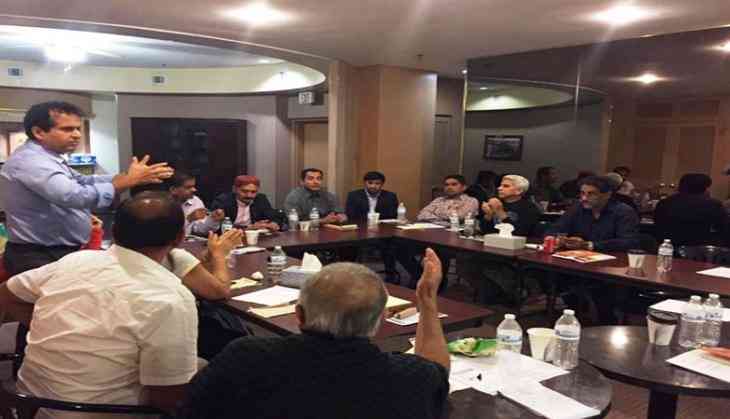
Delegates belonging to various Sindhi Diaspora Organizations gathered in Washington D.C. for a historic two-day conference to explore ways and means to work collectively for the emancipation of Sindhis in Pakistan and to create an integrated platform for diaspora Sindhis.
The meeting concluded with a consensus that for lasting peace, equality and justice, all four constituent nations of Pakistan must have the right to self-determination with the right to exercise the secession.
Thus, the long-term goal of the integrated platform is to carry out activities and advocacy for Sindhi National Self-Determination.
Participants included the representatives from the Sindhi Foundation (SF), World Sindhi Congress (WSC), International Sindhi Women Organization (ISWO), G. M Sayed Memorial Committee (USA), Sindhi American Political Action Committee (SAPAC), Rights Now Pakistan (RNP), Jeay Sindh Qaumi Mahaz (JSQM-USA), G. M. Sayed Studies Board, and a few community prominent members.
Conference delegates agreed that the Sindhi people are currently facing one of the worst onslaughts of violence in their national history at the hands of government agencies. Sindhi people are targets of a number of rights violations ranging from enforced disappearances and extrajudicial killings to attacks on their minority and indigenous rights, forced conversions, and the denial of rights and opportunities to their social, cultural, political and economic development.
Conference delegates highlighted the cases of the hundreds of Sindhi human rights defenders activists who have been the victims of enforced disappearances by Pakistani intelligence agencies.
The enforced disappearances in Sindh have reached unprecedented levels in recent months as hundreds have been abducted. Amnesty International, the Asian Human Rights Commission, the Human Rights Commission of Pakistan, UNPO, few members of the US Congress and Canadian Parliament, and numerous other organizations and have raised the issue of enforced disappearances in Sindh, but the Pakistani government has refused to acknowledge such allegations and concerns.
Islamic religious extremists and rise of madrassas in Sindh pose a significant threat to the Sufi and tolerant culture and way of life of Sindhis. Violence against religious minorities has reached to an alarming state. Specifically, Sindhi Hindus are facing increasing violence including kidnappings for extortion, abductions and forced conversions of Hindu girls, and forced servitude. Conference participants concluded with a consensus that this practice must be stopped and demanded the Government and civil society and political organizations to step up their efforts to counter this increasing threat of Islamic radicalization and violence against Sindhi Hindus.
Conference delegates strongly condemned the designs and demands of challenging the geographical integrity of Sindh. It recognized that Sindh is a multilingual entity and Urdu speaking people are part and parcel of Sindh. Sindhi speaking and Urdu speaking populations of Sindh must jointly defeat all such designs of dividing them and thrusting a linguistic conflict in Sindh as it serves the hegemonic desires of ruling elites of Pakistan
Since the formation of Pakistan, Sindhis have been denied the rights and opportunities to social, cultural, political and economic development. Majority of conference delegates categorically opposed the national and transnational "so-called developmental" projects which pose adverse impacts on the people of Sindh, including the loss of land, environmental degradation, and the increased marginalization of the local population.
All these projects are being implemented in secrecy and without the Government's consultation with the Sindhis.
-ANI


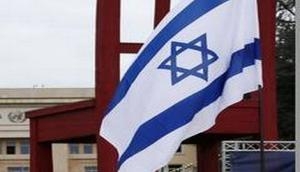

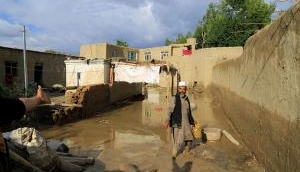
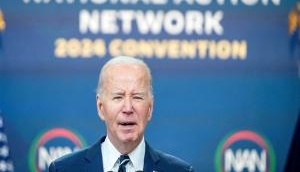
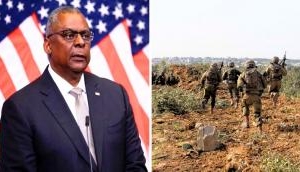
![BJP's Kapil Mishra recreates Shankar Mahadevan’s ‘Breathless’ song to highlight Delhi pollution [WATCH] BJP's Kapil Mishra recreates Shankar Mahadevan’s ‘Breathless’ song to highlight Delhi pollution [WATCH]](http://images.catchnews.com/upload/2022/11/03/kapil-mishra_240884_300x172.png)

![Anupam Kher shares pictures of his toned body on 67th birthday [MUST SEE] Anupam Kher shares pictures of his toned body on 67th birthday [MUST SEE]](http://images.catchnews.com/upload/2022/03/07/Anupam_kher_231145_300x172.jpg)






